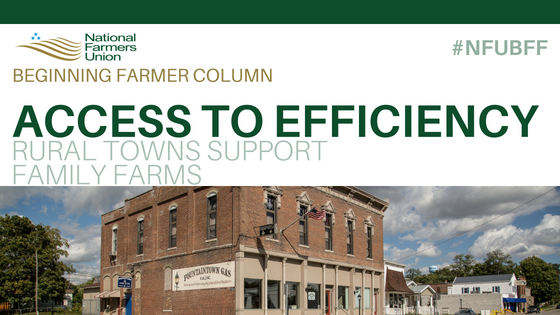 By Lisa Everhart Myers, Demeter Farm
By Lisa Everhart Myers, Demeter Farm
March was an unusual month at Demeter Farm. It was a month filled with farming convention visits, spring snow storms, and, the very best part, an Indiana Class 1A boys’ basketball championship for my alma mater, the Morristown High School Yellow Jackets. For those of you who don’t know anything about Indiana and basketball, this is a big, freakin’ deal, and the tiny town of Morristown and the surrounding communities pulled together in a huge way to support this team. I went to my first Morristown basketball game when I was six-weeks-old and, until 1999 when I moved away, I rarely missed either a home or away game. My parents have only missed a handful since they graduated in 1964. Both my dad and I played and coached there, and my sister was a cheerleader. Basketball is still the lifeblood and unifying factor of these tiny communities that were once supported by farming families and are now decimated by the loss of small farms surrounding them.
As Julie and I sat waiting for the game to start on a Saturday morning, after driving 30 miles per hour on snow-slick roads to get there, (I would have left at 3 a.m. riding an alpaca if that is what it had taken to be there. Missing this game was not an option.) I pointed to the program to Morristown High School’s enrollment: 187 students. When I graduated in 1984, it wasn’t a big school by any stretch of the imagination, but I had 66 students in my graduation class. Last year’s senior class had 35 students.
Why? As someone who has never lived on a farm or in a small farming town, Julie has no idea what happened to these towns. She is not alone in this. I would hazard a guess that if I stopped 10 people in downtown Indianapolis and asked them why farming communities in Indiana are dying that not a single person could tell me about disastrous ag policies in the 70s or the farming crisis of the 80s that was set in motion by disastrous trade moves or stagnant grain prices paired with soaring equipment, land, and supply costs. All of these things have had devastating impacts on family farms and the rural communities surrounding them. When we farm kids left the nest in the 80s and the years following, not many of us came back. If we did, it wasn’t to farm. (This exodus was reflected in this year’s team roster, which had not a single full-time farm kid on it.) As these populations plummet, businesses in town fold. Morristown doesn’t even have a grocery store any longer, and you can forget about supporting the car dealership, the bowling alley, the body shop, and any other of the many businesses that once lined its streets. I won’t even go into the opiate crisis that is rocking small-town Indiana. Bored, hopeless folks make bad decisions, and I will leave it at that.
So, why come back now if things are hopeless? Well, because I believe they are far from hopeless. I believe in the renewed interest in feeding people and feeding them foods that are healthy. I’m not sure that farmers like me can save these small towns that I love so much, but we can improve the communities and give them better food options. We can provide job opportunities to kids in high schools like Morristown. We can educate people in the bigger cities near us as to what is happening out here, which is why I plan to be very active in our newly named all-female chapter of the Indiana Farmers Union. Look for Females Farming Forward to be a force for change. We can lobby and hope that those newly educated people keep our interests in mind as they go to the polls and as we go to the polls ourselves. Things are changing slowly, but for the better. It will be a long upward climb to reverse 50 years of horrible farm policy, but you cannot convince me that it can’t be done.
The sun is starting to peek out from behind the clouds this morning. Let’s get to work.
Like what you’ve read? Check out our Beginning Farmer Forum home page, and join the conversation in the Beginning Farmer Forum Facebook group.

